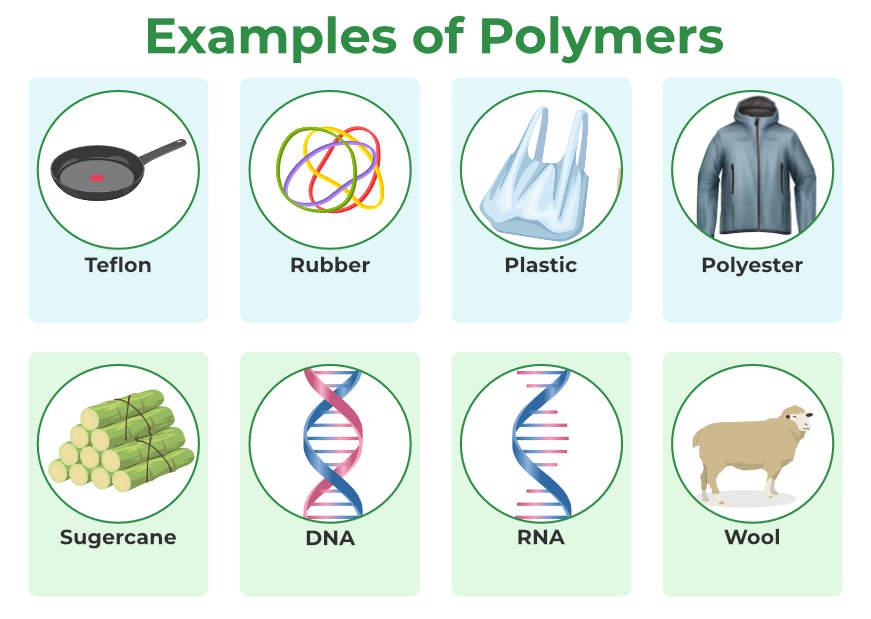Checking Out the Varied Applications and Advantages of Polymers in Different Industries
Polymers, with their varied variety of properties and capabilities, have come to be important in numerous markets, each enjoying unique advantages from their application. Polymers. From improving safety and security and performance in the vehicle market to changing clinical devices in the healthcare sector, polymers play a crucial duty. In addition, their environment-friendly nature is modifying the landscape of sustainability methods. As we explore the depths of polymers in electronics, we reveal innovative advancements, while their structural stability changes the realm of building and framework. The prevalent impact of polymers across industries is a testimony to their adaptability and flexibility, forming the future of numerous markets.
Automotive Industry Applications
Polymers play a critical duty in enhancing the efficiency and sturdiness of numerous parts within the auto field. These flexible materials are thoroughly utilized in the production of different components, varying from indoor elements to under-the-hood applications. One noticeable usage of polymers in the automobile industry remains in the production of lightweight elements. By changing traditional steel parts with polymer-based alternatives, vehicles can attain better fuel effectiveness without jeopardizing on stamina or security.

Medical Care Sector Benefits
In different health care applications, the benefits of making use of polymers are extensively acknowledged for their varied variety of advantageous properties. Polymers play an important function in the healthcare market as a result of their versatility, biocompatibility, and cost-effectiveness. Among the key advantages of polymers in healthcare is their ability to be customized to details needs, such as flexibility, toughness, and biodegradability, making them optimal for a vast array of medical applications.
Polymer-based products are extensively used in clinical gadgets, such as catheters, implants, prosthetics, and drug shipment systems, due to their biocompatibility and ability to mimic all-natural tissues. These products can minimize the risk of allergies or rejections, enhancing patient security and end results. Additionally, polymers are lightweight, making them ideal for wearable medical gadgets and making certain person comfort.
Moreover, polymers make it possible for the growth of ingenious treatment approaches, such as hydrogels for tissue design and nanocomposites for targeted drug shipment. Their convenience of processing and sanitation makes them important for keeping high standards of hygiene in medical care settings. Generally, the varied advantages of polymers contribute dramatically to developments in clinical technology and individual treatment.
Environmental Benefits of Polymers

Furthermore, polymers can add to energy financial savings as a result of their light-weight nature. In industries such as transportation, lightweight polymer materials can assist minimize gas intake and greenhouse gas exhausts. Additionally, polymers can allow the development of energy-efficient items such as insulation products that boost power preservation in structures.
Additionally, polymers play an important function in minimizing water contamination. The usage of polymer-based purification systems can properly get rid of contaminants and pollutants from wastewater, protecting water resources and ecological communities. On the whole, the environmental benefits of polymers make them beneficial properties in advertising sustainability and green methods across numerous sectors.
Polymers in Electronics and Technology
Taking into consideration the boosting demand for innovative and lasting options in contemporary industries, the integration of advanced polymer technologies in the world of electronic devices and innovation has useful content emerged as a crucial strategy for driving efficiency and efficiency. Polymers have revolutionized the electronic devices market by enabling the manufacturing of lighter, much more flexible, and long lasting electronic devices. From smartphones to clinical gadgets, polymers play a vital duty in improving item design and functionality.
One considerable advantage of polymers in electronic devices is their insulating homes, which help shield delicate digital elements from ecological aspects and electric disturbance. Furthermore, polymers are necessary in the development of flexible screens, wearable technology, and printed electronics, offering unlimited opportunities for creating smart and interconnected gadgets.
In addition, the use of polymers in electronic product packaging has actually led to improvements in miniaturization and thermal monitoring, improving the overall performance and integrity of digital systems. As technology proceeds to advance, the flexibility and versatility of polymers will undoubtedly drive even more advancement in the electronic devices industry, shaping the future of innovation.
Duty of Polymers in Construction and Infrastructure
Polymers offer numerous advantages in the building market due to their flexibility, durability, and cost-effectiveness. One essential duty of polymers in building and construction is their use in finishings and sealers, providing security versus ecological aspects such as dampness, UV radiation, and corrosion.
In addition, polymers play a critical duty in lasting construction practices by enabling the development of energy-efficient structures. Insulating materials made from polymers aid control indoor temperatures, lowering the requirement for heating and cooling systems and ultimately lowering energy usage. Additionally, making use of polymer-based compounds in infrastructure tasks such as bridges and roads boosts their longevity and minimizes maintenance prices. On the whole, the incorporation of polymers in building and construction and infrastructure showcases their considerable effect on modern engineering techniques.
Verdict
To conclude, polymers play a crucial duty in different industries such as auto, health care, environmental, electronic devices, and construction. Their functional residential or the original source commercial properties make them beneficial in producing cutting-edge services and products. From boosting fuel efficiency in lorries discover this to boosting clinical gadgets, polymers use numerous advantages. Furthermore, their effect on minimizing waste and advertising sustainability highlights their importance in contemporary applications. The extensive use polymers shows their substantial payment to progressing technology and improving high quality of life.
Comments on “Customized Polymers: Tailored Solutions for Distinct Applications”